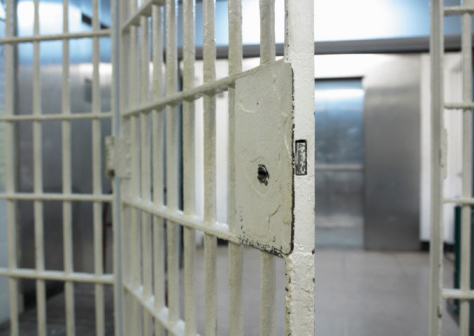California mostly defied the rightward national trend in this week’s midterm elections. The victory of Proposition 47, for example, makes California the first state in the nation to “de-felonize” drug use.
This sentencing-reduction measure won 60 percent of the vote and united a surprising array of supporters, including a conservative evangelical Christian billionaire whose advocacy for criminal justice reform attracted the attention of “some of his friends on the left.”
Another story-behind-the-story is the galvanizing effect that Prop 47 had on California’s diverse Muslim communities, many of which had previously been divided politically along ethnic lines.
Felicitas Galedary, president of the Los Angeles-based Latino Muslim Association of America (LALMA), described her organization’s efforts in support of Prop 47 as a “tiny step” out of its tightly drawn circle of engagement. Until last June, when Galedary, met with faith-community organizers from LA Voice, she had imagined that LALMA’s stretching its wings would simply involve learning how to provide social services to Latino Muslims.
“LA Voice does more around policy,” she said. “That made us see that we were doing what some other Muslim immigrants had been doing—we were separated from other communities, even our own Latino community. You’re not in a cocoon! “
Galedary said that advocacy for social justice and human dignity, which is the heart of LA Voice’s interfaith organizing efforts, is also fundamental to Islam. What had initially been a meeting about how LALMA could address insular concerns became a conversation about how a relatively small community could serve as a force multiplier for collaborative efforts on behalf of numerous interconnected constituencies.
“Prop 47 affects everybody,” Galedary said. “We have had a dream that African-American and Latino Muslims should work together, especially in South L.A. And we want to build bridges with non-Muslims. Our main objective is to show our Latino brothers and sisters that just by being human, we care.”
By staffing phone banks and canvassing registered voters who didn’t cast ballots in the last election, LALMA did far more than take a “tiny step.” The group’s contribution to the larger interfaith effort to pass Prop 47 represented an important shift toward greater civic engagement in immigrant Muslim communities, several of which have the highest growth rates of all immigrant groups in Southern California. The state’s diverse and growing array of Muslims are thus an integral part of the collaborative movement that has put California at the leading edge of criminal justice reform nationwide.
“Most of what’s been in the news about Muslims lately is not great,” said Sarah Jawaid. “What we’re doing is a counter-narrative to all of that.”
Jawaid, an LA Voice organizer working with African-American Muslims in South Los Angeles, said that she is encouraged by the linkages across differences of race, generation and religion that activism around Prop 47 has forged.
“It’s relatively new for immigrant Muslims to work on issues that aren’t exclusive to their communities,” she said. “This has been a huge multi-faith effort. It’s pretty exciting for me personally to see my community step into this.”
Umar Hakim—executive director of the ILM (Intellect, Love, Mercy) Foundation and a member of the advisory committee for LA Voice—echoed Jawaid’s excitement about the movement that formed around Prop 47.
“It’s like stone soup,” Hakim said. “People are realizing how much they have in common and contributing to the effort because of that.”
Like Galedary and Jawaid, Hakim worked with Muslim congregations to distribute voter pledge cards and enlist volunteers to canvass potential voters and staff phone banks.
He said that the positive responses to his phone pitch for Prop 47 were an unexpected surprise.
“It’s been amazing to see how many people were supporting this,” Hakim said. “There are more people that think about justice than I realized!”
The momentum for collaborative Muslim faith-based activism around Prop 47 began to build earlier this year, when Jawaid and Hakim organized communities in South L.A. to support the Fair Chance Initiative—a motion, currently before the Los Angeles City Council, that would push back the point in the hiring process when private employers can conduct background checks on prospective job candidates.
“We’re definitely seeing greater participation from different Muslim communities,” said Zach Hoover, executive director of LA Voice. “At the press conference for the Fair Chance Initiative, we prayed Jummah on the lawn in front of City Hall. For Prop 47 we had over two hundred Muslims, Jews and Christians gathered at West Angeles Church on the eve of Sukkot. It’s just really beautiful.”
In the broader faith-based activism that is providing energy for California’s leadership in criminal justice reform, Hoover said he sees a collective commitment to “humanizing more people.”
“The heart of the matter is building a more inclusive society,” he said. “Changing the story about people who are incarcerated changes the story about everyone—my neighbor is human, just like me.”
If California is a trendsetter, we should hope that rest of the country catches the cultural wave that made Prop 47 a success.


